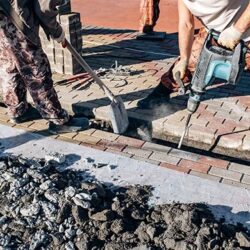If you live in Campbelltown or nearby suburbs, having a dependable hot water system is essential, especially when usage is heavy and expectations are high. When issues crop up, you’ll want to know what to look for, what options there are, and what costs to expect. Here are key considerations for Hot Water System Replacement in your area.
Warning Signs to Watch For
These are indicators that it’s time to replace the system:
- System age beyond 10‑15 years.
- Frequently running out of hot water or slower heating.
- Water discolouration or bad smells.
- Leaks or rust on the tank or piping.
- Noises like gurgling or banging inside the tank.
- Increase in energy costs without a change in usage.
Matching System to Campbelltown’s Needs
Because Campbelltown can have different patterns of use (multiple occupants, early morning showers, etc), consider:
- Demand: number of people, how many bathrooms, how many showers running at once.
- Fuel/energy source availability: electricity, gas, potentially solar.
- Efficiency: Systems with better energy ratings save more in the long term.
- Space: Some properties will have more room to locate tank systems; others need compact or continuous flow units.
- Local climate: heat, humidity, seasonal changes, systems have to cope well.
System Types & Pros/Cons
- Electric storage: common, simple, lower entry cost, but higher running cost.
- Gas storage or continuous flow: faster heating, may be cheaper if gas is economical.
- Heat pump: highly efficient, useful for reducing power consumption, but more expensive to install.
- Solar‑boosted: helps save on electricity or gas when sunlight is good; often paired with backup.
Cost Considerations
When budgeting for Hot Water System Replacement in Campbelltown, include:
- Price of new unit, depending on capacity and type.
- Labour and installation: removal of old system, plumbing/gas/electrical adjustments.
- Permits, compliance, safety inspections.
- Disposal of the old unit.
- Potential rebates or incentives.
- Running and maintenance costs after installation.
Practical Advice
- Obtain multiple quotes from licensed installers.
- Confirm warranty on tank, heat exchanger, and components.
- Choose a system sized appropriately, not over‑spec’d just to “be safe”, as that wastes energy.
- Plan replacement when not desperately needed, off‑peak season or before major weather swings.
- Ask about energy savings over time: more efficient systems may cost more up front, but return value through lower running bills.
Final Thoughts
A properly chosen Hot Water System Replacement in Campbelltown means happier showers, less risk of breakdowns, and lower bills. If you see warning signs, rust, leaks, age, rising costs, it’s almost always better to act proactively.




